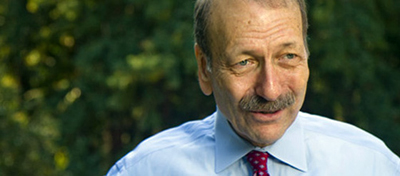Even after nine years as chancellor, I find myself struck in new ways by the impact this university has on the world. Across the disciplines, UC Santa Cruz scholars are contributing to the public good.
Literature Professor Kirsten Gruesz has discovered and is now translating the oldest Latino-authored novel to appear in print in the United States. Published by Eusebio José Gomez in 1848 and uncovered by Kirsten during research in The Historic New Orleans Collection, this novel, A Marriage Like Many Others, pushes back the date of publication of the first Latino novel by four decades.
This process of discovery, analysis, and exposure—because Kirsten is translating the text and plans to share it with the world—is at the heart of what we do at this university. Scholars like Kirsten discover lost texts that enrich our understanding of those who came before us and expand our appreciation of those who have shaped our collective history.
This more robust, more inclusive picture is made possible by UC research, which is part of what makes it exciting to be a student at a major research university. Learning from faculty members who are themselves on the path of discovery is inherently engaging. As one colleague put it, professors here aren't telling a story that others are writing; they are writing the story.
Other scholars shed light on pressing issues of the day, such as the public-health impacts of underage drinking. Carlos Dobkin in economics recently compared the drinking behavior of individuals just under 21 to those just over 21 and found that the minimum legal drinking age does in fact inhibit alcohol consumption—by 20 percent. Age-based drinking restrictions also reduce mortality by almost 10 percent, due mostly to fewer motor vehicle accidents.
In light of current proposals to lower the drinking age to 18, Carlos's findings are particularly timely. Many, including college presidents in the Amethyst Initiative, make the case that our laws are out of date and should reflect the actual behavior of young people today. Carlos's findings can help individuals assess their risk—and can help governments assess the potential costs of lowering the legal drinking age.
During his recent TEDx Santa Cruz talk, genomics expert David Haussler recalled the "moment our blueprint became open source." David's team pulled off the amazing computing feat of assembling the first complete sequence of the human genome in 2000, powering the public consortium to victory in the race to crack our genetic code. But then the UCSC team did something their corporate competitor never would've done: they posted it on the internet, ensuring that our "genetic recipe" would remain unrestricted and available for free, forever, to everyone.
UCSC faculty like Kirsten, Carlos, and David share a fundamental commitment to open access that advances scholarship and facilitates research around the globe. As David mentioned, the UCSC Genome Browser gets more than 1 million hits per day from scientists around the world.
Scholarship in service of the public good. That's what we do at UC Santa Cruz.



